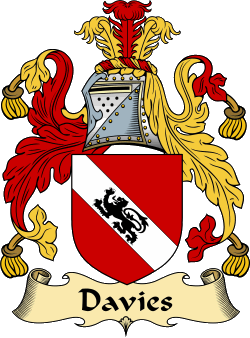|
|
Search

|
  Home Home
|
  Surname Surname
|
  First Name First Name
|
Popular Products

|
  Coat of Arms Coat of Arms
|
  Clan Badges Clan Badges
|
  Books & Gifts Books & Gifts
|
  Celtic Jewelry Celtic Jewelry
|
  Black Shirts Black Shirts
|
  CD Music CD Music
|
  Download Download
|
 Design Gallery
Design Gallery

|
  Irish Irish
|
  Flags Flags
|
  Celtic Celtic
|
  Tartans Tartans
|
  Scottish Scottish
|
  Claddagh Claddagh
|
  Surnames Surnames
|
  Highlander Highlander
|
  Celtic Radio Celtic Radio
|
Research

|
  History History
|
  Country Country
|
  Families Families
|
|
|
|
|
 Our catalog of products also includes three designer logos created specially by the Celtic Radio designers:
'Enjoy Life' Brand - Pigmented fun t-shirts with our 'Enjoy Life' logo. Stickers available too!
'StormCelt' Brand - Rugged wilderness outdoor wear for the true independent Celt.
'StormGale' Brand - Clothing products to keep you warm & dry when storm winds blow.
|
|
Our Heraldry Database has thousands of Family histories to search. Visit Now!
Rogers

Coat of Arms
.....
|
|
|
Heraldry Database: Davies
Davies

|
|


Surname: Davies
Branch: Davies
Origins: Welsh
More Info: Wales
|
|
Background: Son of David. Darling, Friend. A name common in both England and Scotland from the 12th century and in Wales much earlier.
From a surname based on the name DAVID. Possibly derived from Hebrew ??? (dvd) meaning "beloved". David was the second and greatest of the kings of Israel, ruling in the 10th century BC. Several stories about him are told in the Old Testament, including his defeat of Goliath, a giant Philistine. Jesus was supposedly descended from him.
Famous bearers of this name include the 5th-century patron saint of Wales, two kings of Scotland, empiricist philosopher David Hume, and explorer David Livingstone. This is also the name of the hero of Charles Dickens' semiautobiographical novel 'David Copperfield'.
|
 Motto: Motto: Heb Dduw heb ddim, Duw a digon; Without God without anything, God is enough. Arms: Gules, on a bend argent a lions passant, sable. View the Heraldry Dictionary for help.

Let us look first at names from the Old Testament. Far the highest of them on our list is David, but if our subject is confined to English surnames David's score must be reduced by more than half. Nearly all examples of Davies are Welsh, and this is no mere echo of English popularity as in the case of Williams, but an expression of loyalty on the part of Welshmen to their own patron saint and native princes. We must also bear in mind that David is a favorite name among Jews, and that in modern times many of them have assumed the properly English or Scottish forms of Davis, Davison or Davidson. According to my calculations on both these points, something over three thousand must be subtracted to leave David with a truly English total. But even so it will be seen that it was a popular name here in the Middle Ages. It is often to be found in medieval rolls, both as David and in the abbreviated form Daue, giving us the well-known surname Dawson. It may seem a strange form for this name to take. There was in medieval script a great confusion between the letters 'v', 'u' and 'w', and how the short form was pronounced at first is not certain, but it has descended to us as Daw (a surname that can also be a nickname for the bird).
But the popularity of this name is due not only to the David of the Bible but also to the sixth-century Welsh saint who probably made the bigger appeal of the two, even to the English. It was Henry I who brought St. David into prominence in England, and his motive was not entirely religious. The Norman Kings had only a slight and partial hold on Wales which they always hoped to increase. The promontory of Pembroke shire jutting out towards Ireland was of strategic importance, and Henry chose to settle there a colony of Normans and Flemings under his control. He also replaced the Welsh bishop with a Norman, and in order to placate outraged national feeling, rebuilt the Cathedral in the grand manner and used his influence in Rome to have David officially canonized and included in the international Christian calendar. From that time St. David's became one of the principle places of pilgrimage in the British Isles. The long overland journey from England, through mountainous country full of danger from wild beasts and robbers, was enough to satisfy anyone's zest for adventure, while the sea journey was probably almost as hazardous. It was officially laid down by the English Church that two pilgrimages to St. David's equaled in merit one to Rome, and itís very dangers made it the more attractive.
Name Variations: Davies, Davis, Divis, David, Davidson, Davison.
References:One or more of the following publications has been referenced for this article.The General Armory; Sir Bernard Burke - 1842.
A Handbook of Mottoes; C.N. Elvin - 1860.


Discuss
|
 Search
Search
|

Sign-up for a Founders account and receive personalized
family heraldry service and much more!

Want to know more?
Click the Heart!
|
|
|



